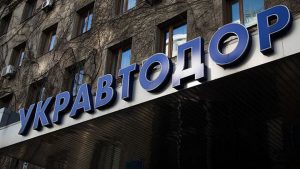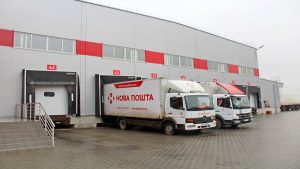
In the modern world of rapid technological development, you need to do a lot to be successful and stay in the top. It is especially important to know how to stay healthy and enjoy a fulfilling life, be productive and push yourself beyond limits.
Answers to the most topical questions about upgrading the body and mind will be given at the first Biohacking Conference Kyiv, dedicated to innovative ways of improving health and prolonging youth. Organized by Smile-Expo, the event will take place on November 11, 2020.
Leading experts from various industries will speak at the event: doctors, scientists, gerontologists, biohackers and many others. Among them:
– Oleksandr Kolyada – geneticist, research associate at the lab of epigenetics at the Institute of Gerontology, founder of DIAGEN lab.
– Lyudmyla Goncharova – dietarian, immunologist, two-time winner of The Battle of Nutritionists TV show on STB, founder of Goncharova Clinic.
– Oleksandr Skorokhod – Candidate of Biological Sciences, research worker at the Department of signaling cell systems at the Institute of Molecular Biology and Genetics at the National Academy of Sciences of Ukraine.
– Hlib Khodorovskyi – meditation expert, experienced mindfulness trainer.
Experts will delve into the main biohacking tools and explain the interrelation of dieting and longevity. Separately, speakers will discuss how genetic researches help to detect health risks, determine parameters of food digestion, and draw up a disease prevention program. In addition, the reports will focus on a safe approach to sports training, the benefits of mindfulness meditations and health management intended to improve productivity in all areas of life.
About safety measures at the conference
To protect guests, speakers, participants, and sponsors of the event against catching coronavirus, Biohacking Conference Kyiv will adhere to all the requirements of the Ukrainian government and the Ministry of Healthcare aimed to prevent the spread of COVID-19.
The following preventive measures will be taken at event, among others:
– Admission to the event is allowed only in a protective face mask or respirator.
– Temperature screening at the entrance.
– Availability of antiseptics in the premises, where the event will take place.
– The number of conference attendees is restricted according to the requirements of the Ministry of Healthcare.
– The distance between chairs for guests will be at least 1.5 meters.
Organizer and venue
The event is organized by the international Smile-Expo company, which specializes in industry events dedicated to innovations.
Biohacking Conference Kyiv will be held at Oasis conference hall on November 11.
More info and registration: kyiv.biohacking.events
Interfax-Ukraine – General News Partner of the event.

THE ANNUAL FORUM OF FINANCIAL DIRECTORS OF UKRAINE is a flagship event that has gathered the financial elite of Ukraine for 18 years in a row.
– The Forum takes place: November 11, 18-19, 2020
– Organizers: FA Service and Boyden
– General news partner: Interfax Ukraine
– Official Educational Partner: ACCA Ukraine, 30 CPD units for participation.
In connection with the pandemic, the 19th Forum of CFOs of Ukraine contains offline and online components:
– November 11, 2020 / Pre-ForumVirtual Workshops online – consists of seminars and master classes.
– November 18-19, 2020 / CFO Forum offline – traditionally includes 2 parallel streams of speeches, discussions, master classes and presentations.
Ukrainian CFO Forum 2020 in numbers and facts:
– 60+ TOP speakers & 30+ hours of presentations, panel discussions, debates and interviews
– Participation Offline or Online (optional)
– By participating in the forum, ACCA members can credit up to 30 CPD units.
– 600+ forum participants – potential business partners, clients and like-minded people
CFO FORUM 2020 PROGRAM
Among the speakers are well-known experts, and here are just a few of them:
– Alexander Alekhin, CEO of Kadorr Agro Group
– Yulia Dankova, CFO Metinvest Holding
– Igor Mazepa, CEO of Concorde Capital
– Julia Kiryanova, CFO Smart-Holding
– Rafael Goroyan, head of the group of companies “Prometheus”
– Svetlana Gruhal, CFO Mars Ukraine
– Yuri Geletiy, Deputy Chairman of the NBU
– Vladislav Leshchy, CFO British American Tobacco Ukraine
– Vladimir Lavrenchuk, Banker, economist
– Dmitry Grishchenko, CFO Danone Ukraine
– Sergey Bulavin, CEO of AgroGeneration
– Anna Samarina, CFO PrivatBank KB
– Nadezhda Kaznacheeva, Investment Director, UMG Investments
– Vladimir Glashenkov, Head of the Supervisory Board of the Ternopil Dairy Plant (TM Molokia)
– Natalia Baranovskaya, CFO Darnitsa
– Oleg Ustenko, Executive Director of the International Blazer Foundation
– Margarita Romanova, Director of Distribution and Logistics CIS / Middle East, GSK
Attention! For readers of Interfax Ukraine special conditions of participation apply. When registering on the Organizer’s website, indicate the promo code:
– “BUSINESS” package. 20% discount: “OfflineIU20” or 40% discount: “OnlineIU40”
– Package “STANDART”. 15% discount: “OfflineIU15” or 30% discount: “OnlineIU30”
REGISTER
We will be glad to welcome You among the CFO Forum participants – the financial elite of Ukraine!
For participation and cooperation, please contact the Organizer:
+38 (096) 225-44-19 / ihor.solovykh@cfo.ua
Interfax-Ukraine general news partner

The State Road Agency of Ukraine (Ukravtodor) has begun repair work on the sections of the route from Izmail to Vylkove with a length of 34 km (Odesa region).
As reported on the Ukravtodor’s Facebook page, work is currently being carried out on a ten-kilometer section from the city of Kiliya to the border of Izmail district. Arrangement of the base with crushed stone-sand mixture has already begun here.
The contractor is Rostdorstroy LLC.
It is noted that work is also carried out to develop designed-estimated documentation for the renewal of a 24 km section from Kiliya to Vylkove. The work is scheduled to begin early in the new year.
According to the agency, drivers will be able to use the updated route next year.
In total, in Odesa region, Ukravtodor plans to renew 194 km of roads in 2020.

Uber taxi service has launched Pool Chance in Kyiv, which provides an opportunity to share a ride with another passenger in one car.
“Pool Chance is an option in the Uber app that allows you to share a ride with another passenger in the same direction. Maximum two people can share a ride in one car, and the cost of the ride for each of them will be cheaper than in Uber X,” goes in the service statement.
Kyiv will be one of the first cities in the world to offer this new pilot service.
The company also stressed that all drivers and passengers must wear protective masks when using Pool Chance or other Uber services.
“In case another passenger is not found during the ride, the cost will be as for UberX, which is indicated in the app at the beginning of the ride. The percentage and the exact amount of cashback are dynamic and will be added to passengers’ wallets in the form of UberCash,” goes in the description of the new service.
According to Georgii Sokolianskyi, Uber’s Development Director in Central and Eastern Europe, Kyiv has already been among the first cities where the company launched new services, such as Uber Green or Uber Shuttle.
“Investing in services such as Pool Chance, we want to offer people new options for moving around the city in order to leave private cars at home, reduce the number of cars on the road and relieve traffic on popular routes,” he stressed.
By launching this service, Uber wants to help Kyiv become a greener city and maximize urban mobility, he said.

Nova Poshta Group of Companies opened its 7,000th office in Ukraine in October 2020.
According to the company’s press release, the company’s network currently has 7,145 offices, 4,100 of which operate in villages.
“This year we have already opened 1,300 new offices. That means, on average, Nova Poshta opened five offices a day, four of which are in villages where the company was not previously represented,” the press service quotes CEO of Nova Poshta Oleksandr Bulba.
The company noted that in 2020 the network was also expanded in resort areas. In particular, offices appeared in Henicheska Hirka (Kherson region), Mykolaivka, Prymorske (Odesa region), Tatariv (Ivano-Frankivsk region), Oriavchyk (Lviv region) and others. In general, Nova Poshta already operates in more than 100 resort areas.
At the same time, according to the company, the leader in network expansion in 2020 was Ivano-Frankivsk region, where more than 100 new offices have appeared since the beginning of the year. The top five regions also include Lviv, Odesa, Zaporizhia and Rivne regions.

Factoring reform has the potential to address the market gap in receivables finance in Ukraine, currently estimated at between EUR 1.5 billion and EUR 3.4 billion, and developing the factoring sector will help expand access to finance for businesses and save jobs, Head of the Trade Facilitation Programme of the European Bank for Reconstruction and Development (EBRD) Rudolf Putz said during a webinar held jointly by the EBRD and the National Bank of Ukraine (NBU) on Tuesday.
According to the EBRD, in Ukraine, receivables finance represents only 0.1% of the country’s GDP, compared to 8% of output in neighboring Poland, where the factoring market remains the fastest-growing financial sector, worth EUR 66.1 billion and serving more than 18,000 businesses.
“The demand from smaller businesses, which typically find it difficult to secure bank loans, will grow exponentially as the COVID-19 pandemic shows no signs of slowing down,” Putz said.
The EBRD said that the webinar brought together more than 100 trade professionals, bankers and international experts. The two-day virtual event called for sound policy and a good regulatory framework to enable the healthy development of factoring, to expand access to finance for small and medium-sized enterprises (SMEs) and to strengthen their financial resilience.
The event was delivered by the factoring working group at the National Banking Association of Ukraine in cooperation with FCI, the largest global representative body for factoring and financing of open-account domestic and international trade receivables.
According to the report, drawing on the experience of Greece, Poland, Turkey, the United Kingdom and the United States of America, the working group and the National Bank of Ukraine agreed the next steps in reforming the sector.
These include the separation of factoring from debt collection; business education and marketing of factoring; the promotion of paperless and automated document flows; the protection of creditors’ rights; the rethinking of factoring-related risk assessment; the establishment of a factoring risk insurance framework; and improved legislative regulation.
FCI expressed a strong view that Ukraine needs to develop an effective regulatory policy governing the factoring business and to adopt a factoring law.
The EBRD is the largest international financial investor in Ukraine. To date, the Bank has made a cumulative commitment of almost EUR 15 billion through 466 projects in the country.
The EBRD launched two Solidarity Packages in response to the COVID-19 crisis and now expects to dedicate its total business investment of up to EUR 21 billion in 2020-21 to overcoming the economic impact of the crisis.